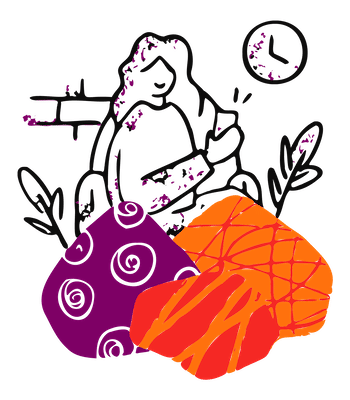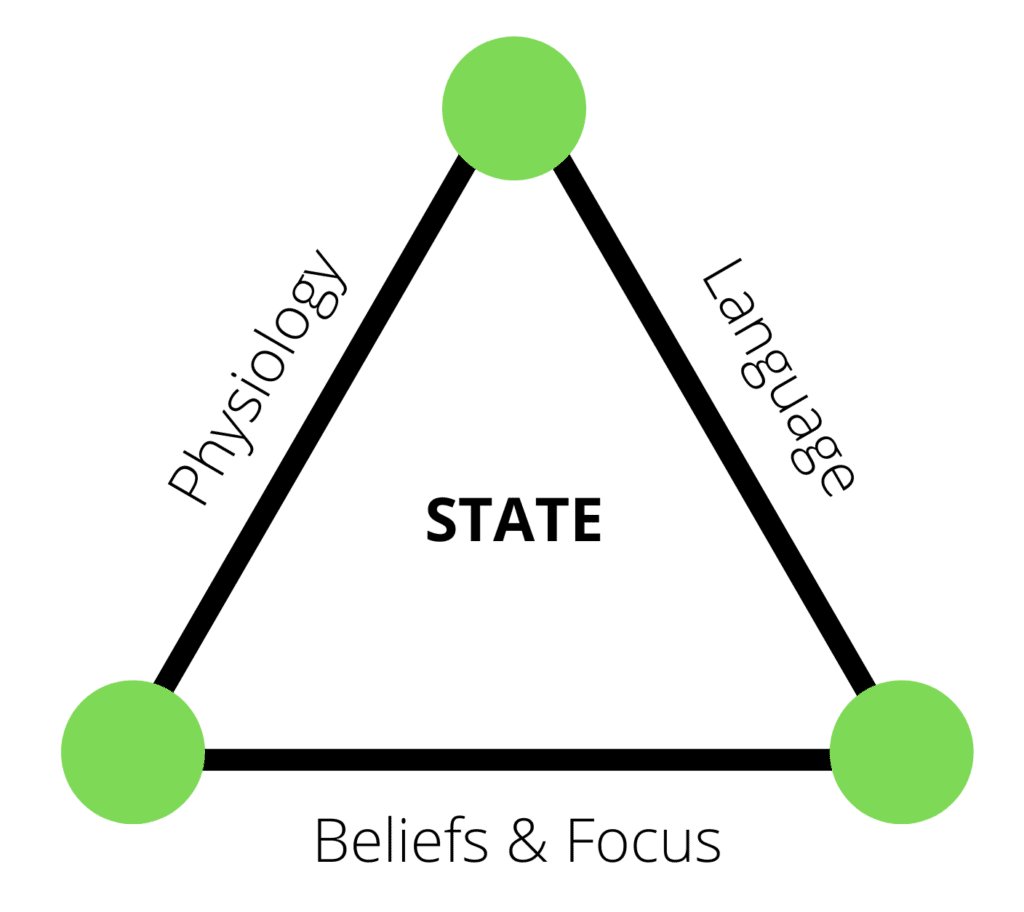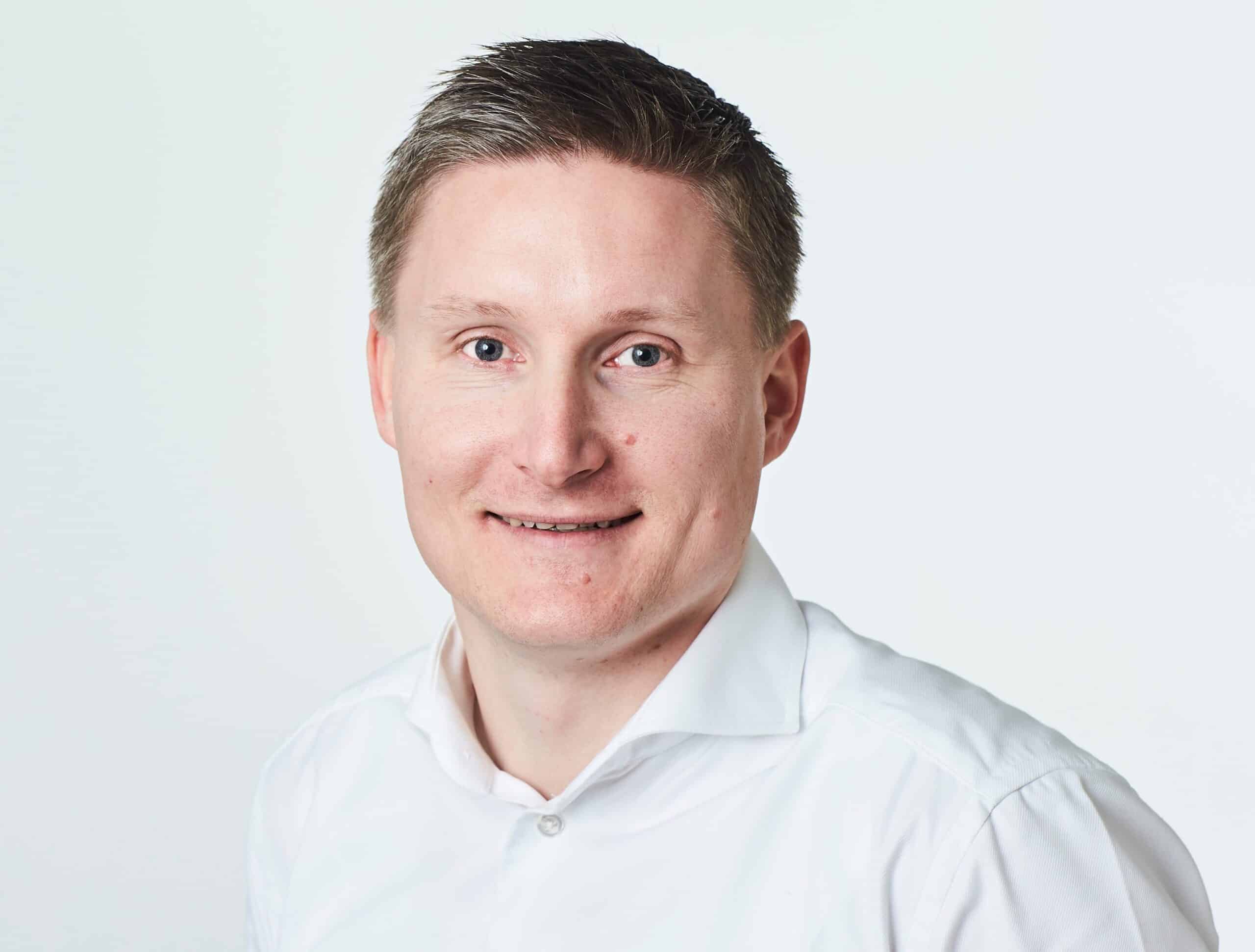Below are some useful ways for improving your mental well-being based on research.
Most people spend 81,396 hours of their lives working(1). Think about that for a second.
That is a lot. So, of course work affects us in several ways. The world does too.
We are all affected differently by the uncertain times of the post-COVID-19. Some still face tight local restrictions. Others don’t. First hand, we try to adapt to flexible and hybrid ways of working. Everyone are we spectators to pressured global supply chains, volatile financial markets and uncertainty from the war in Ukraine.
And to make things more complicated, we experience higher inflationary pressures around the world. That makes our foods, house loans, electricity and heating up our houses increasingly more expensive.
Therefore, both physical and mental well-being are still challenged around the world.
Post-COVID-19, people have increasingly experienced mental or digital fatigue and burnout. Gallup’s recent State of the Global Workplace: 2022 Report shows that people around the world are both anxious and stressed(1). In fact stress continues to be at an all-time high: 44% of employees have experienced stress a lot during their previous workday(1).
New ways of working have also made social connectivity very different. For some people much more superficial. As humans, we simply also need the personal, warm and human social contact.

However, a positive side effect of it all is that people re-consider and question how they live their lives. People seek meaning. They seek meaningful lives and ask themselves “am I doing what I want with my life”, “Is this really what life is all about” and “why do I have this job, when I don’t enjoy it”.
Higher employee turnover in many companies also reflect that change. Furthermore, the demand for qualified talents around the world is also at a very high level. Changing jobs have become more available.
Therefore, we see a clear and apparent demand for human leadership that is authentic, empathetic and situational or adaptive(2). Leadership that shows genuine care, respect and concern for employees’ well-being(2).
And so, this write-up has the purpose of helping you with ways to make your mental well-being better.
It consists of three parts or topics:
- Three skills that can help you improve your mental well-being
- A 3-part triad to build your peak mental and emotional state
- Benefits of nature on mental well-being
In this article, I will share the most important skills (three parts), mental and emotional states and looking to nature for improving mental well-being.

Some weeks ago, I read an amazing article about mental well-being. The article laid out some intriguing new research about the skills that are most important for mental health and well-being(3,4). The findings stem from a huge research project and effort by nearly 50 people over the course of four years(3,4).
The researchers analyzed and reviewed nearly 55.000 studies (54.633 studies to be exact). They found that psychological flexibility and mindfulness skills proved far more effective on mental health and emotional well-being than anything else(3,4).
So, what does psychological flexibility actually entail? Let me explain it in the next part.
Psychological flexibility: How to improve your mental well-being with these 3 skills.

Psychological flexibility is a combination of three different skills in one(3,4):
Skill #1 — Awareness: Noticing what happens in the present moment in the here and now, i.e. what thoughts, feelings and sensations you notice. It also entails the ability to direct, broaden or focus your attention on different aspects of your experience. From witnessing yourself in the moment (spiritual) to attentively experiencing something.
Skill #2 — Openness: Allowing difficult negative thoughts and painful feelings to be exactly as they are. So, being open to the different thoughts and feelings for what they are, without them controlling you. Often that openness then makes thoughts and feelings become more positive.
Skill #3 — Engagement: Knowing what matters to you and taking committed actions towards that direction to build the required sustainable habits. So, it entails being in contact with the goals or outcomes you want to achieve as well as your values in life. Values are the chosen personal qualities that influence who you choose to be and what you do. These guide you regardless of the outcome.
“Flexibility is a learned mental skill. In today’s dynamic world, your effectiveness as a professional depends on your readiness to adjust quickly to the moments of need or opportunity, adversity, and change.”
Jennifer Touma
So, psychological flexibility and mindfulness are the smallest set of skills that have a huge effect on most areas relating to mental health and well-being. What Coaching can do is to create that self-awareness and openness about your feelings, thoughts and values through a space of thinking and reflection where you can say things out loud. That can change your life.
Next, let me show you, how you can better discover your most fulfilling mental and emotional states.
How to build your most fulfilling and peak mental and emotional state: 3-part triad.

Back in the early 2000s, I began working as a Performance Coach for endurance athletes.
Often, I used the above triad model in my Coaching. The model was introduced by the Danish Coach Sofia Manning, who has contributed enormously to professionalizing Coaching in Denmark. Sofia Manning was trained by and worked for the famous Coach Tony Robbins in the US, who use a simpler version of the triad model(5).
The 3-part triad combines three different components that effect your mental & emotional state(5):
Physiology #1: Refers to your body, its systems and all related to how you use your body. E.g. your body language, your posture, your mimic, your feelings and your movements and your breath. So how you use your body affects you mentally and emotionally. Your mindset and your feelings.
EXAMPLES.
Good examples from sports are e.g. when you become aware of your breath, any sensations in your legs from the pace of a run. You can then be open to it, when it feels really hard to keep the pace, or you can make sure to adapt it. From the workplace a good example of physiology is when people get stressed. Then their posture changes. They get more tense, slump together and their breath is one thing often affected. Breathing simply becomes more difficult. We forget to breathe properly. Sleep and nutrition is also something that we know affect our physiology.
Language #2: Represents your inner self-talk and your outer speak. So, it basically means what you say to yourself internally and what you speak out loud to others.
EXAMPLES.
From sports, what you say to yourself and others can affect your mental state and performance negatively or positively. You might say to yourself “why do bad things always happen to me” or “I will never make it”, which can direct your focus to a negative place. So becoming aware and open to your self-talk can be useful. Positive trigger words can be used to change your focus and mental state. Examples from work could be when you say to others “I am not good enough for that task” or if you say to yourself “I will never get that job” or something similar. We also know how negativity of one person in a team or collaboration can affect the whole atmosphere.
So, what we say is important for the mental state, we create. For ourselves, but also for others.
Beliefs & Focus #3: Refers to what you intentionally direct your attention towards right now (focus) and what you believe, i.e. the stories you believe to be true about something.
EXAMPLES.
The triad model relates well to mindfulness when it comes to the component of focus. An example could be if you run a 10k race, and you suddenly feel the lactic acid in your thighs and all you can is but focus on the pain. That is how our focus can be directed. Or it can be on a nice walk in the forest when you drive your attention towards the smells of the lavenders and trees after it has rained. When you become attentive to the wind in the trees etc. — At work when we are in an open office space and someone speaks out loud, your focus can also unwillingly move to the noise.
Beliefs can be helpful or limiting and I have among others come across runners who said “I cannot run, when it rains” or “I am not good enough” — we also experience those beliefs at work, when we might say to ourselves “they are all against me”. Naturally, this is something that you can change and work on. You can deliberately focus on what contributes positively to your mental state and the beliefs that help you. Exercise, can also help center your focus and clear the mind.
Over the years, I have refined the triad model with components of physical and mental well-being to be able to take care of oneself. The triad model works very well to build a positive mindset. It further contributes to the psychological flexibility skills in creating awareness and openness to the present moment: feelings, sensations, beliefs and what you focus on and say to yourself. It can also be a great tool to help you create the mental state, you would like to have.
Now, we will next turn toward our beautiful nature to see how it affects our mental well-being.
The benefits of nature immersions and exposure to nature on mental well-being.

I think that many of us have experienced being more outside in nature during COVID-19, when we were not restricted from leaving our homes. Going for a walk on the urban trails or in the deep green forest.
We seemed to be drawn to being outside in nature, when we were in fact restricted from being able to.
A 2015 study on the benefits of nature experiences have shown that participants walking in nature experience more positive emotions, less anxiety and rumination (a focused attention on negative aspects of oneself)(6). Furthermore, this inspiring study showed that the participant group walking in nature improved their performance on working memory tasks(6).
Well, that means that nature appears to positively affect our mental and emotional states, so we can actually perform better.
“Look deep into nature, and then you will understand everything better.”
Albert Einstein
Newer research from 2020 also confirms that time spent in nature reduces stress(7). The research also shows novel findings that imply that exposure to nature or nature immersions may boost mood and enhance arousal(7). Professor David Strayer from the University of Utah says that “now we are seeing changes in the brain and changes in the body that suggest we are physically and mentally more healthy when we are interacting with nature”(8).
From this TEDx from 2017, Professor David Strayer further outlines how you can restore your brain with nature.
A thorough study by Peter A. Coventry and a large group of researchers have also analyzed 14,321 records on nature-based interventions and 50 studies(9,10). Nature-based interventions are activities that support people in engaging with nature in a structured way to improve mental health(9,10). So, a huge study on the effects of nature-based activities.
What the researchers found was that taking part in outdoor, nature-based activities led to improved mental health in adults, i.e. improved mood, positive emotions and less anxiety(9,10).
So, it seems that nature has some remarkable positive effects on our physical and mental well-being.
Interestingly, the study also showed that doing the activities by your own is effective, but the gains on mental health are greater, when doing the activities in groups(9,10). That can also point to positive effects of bringing in nature immersions or outdoor activities in team building and development. Or in daily work.
Tell me what do you do to make your own mental well-being or those of your employees better?
So, what I’ve walked you through are different useful ways for improving mental well-being and learning from nature. Hopefully it can inspire you to create a better and happier life.
Do you personally want to change, achieve a goal or e.g. want to better:
- Prevent stress and burnout and increase well-being (life balance)
- Find your peak mindset and emotional state
- Discover your life purpose and direction
- Perform at work, in sports or education
And are you open to having any help with that?
Then you can join a Transition Coaching Programme or a 12-Week Transformational Coaching Programme — ELEVATE: High Performance Coaching Programme — focused at creating high performance and well-being.
Contact me to learn more and experience Coaching.
When we work together, we will work in a partnership to..
* Set clear, exciting goals that motivate you to take action and realize your dreams and ambitions.
* Create new perspectives and patterns to create balance and give you confidence to achieve your goals.
* Become aware of where you need to be accountable to create action and get things done, so your performance & well-being increases.
Resources.
(1)Gallup (2022) State of the Global Workplace: 2022 Report. Available at: https://www.gallup.com/workplace/349484/state-of-the-global-workplace-2022-report.aspx (Accessed 4 September 2022).
(2)Gartner (2022) Gartner HR Research Identifies Human Leadership as the Next Evolution of Leadership. Available at: https://www.gartner.com/en/newsroom/press-releases/06-23-22-gartner-hr-research-identifies-human-leadership-as-the-next-evolution-of-leadership (Accessed 4 September 2022).
(3)Hayes, S. C. (2022) The Most Important Skill Set in Mental Health. Available at: https://medium.com/@stevenchayes/the-most-important-skill-set-in-mental-health-b9fd1ea372aa (Accessed: 4 September 2022).
(4)Hayes, S. C., Ciarrochi, J., Hofmann, S. G., Chin, F. and Sahdra, B. (2022) Evolving an idionomic approach to processes of change: Towards a unified personalized science of human improvement, Behaviour Research and Therapy 156(7-8): pp. 1-90.
(5)Manning, S. (2006) Coaching: Det handler om at stille de rigtige spørgsmål, Aschehoug Dansk Forlag, Copenhagen: pp. 59-86.
(6)Bratman, G. N., Daily, G. C., Levi, B. J. and Gross, J. J. (2015) The benefits of nature experience: Improved affect and cognition, Landscape and Urban Planning 138: pp. 41-50.
(7)Scott, E. E., LoTemplio, S. B., McDonnell, A. S., McNay, G. D., Greenberg, K., Mckinney, T., Uchino, B. N. and Strayer, D. L. (2020) The autonomic nervous system in its natural environment: Immersion in nature is associated with changes in heart rate and heart rate variability, Psychophysiology 58(4): pp. 1-14.
(8)Suttie, J. (2016) How Nature Can Make You Kinder, Happier, and More Creative. Available at: https://greatergood.berkeley.edu/article/item/how_nature_makes_you_kinder_happier_more_creative (Accessed: 4 September 2022).
(9)Creese, T. (2021) Nature-based activities can improve mode and reduce anxiety, new study shows. Available at: https://www.york.ac.uk/news-and-events/news/2021/research/nature-can-improve-mood-and-reduce-anxiety/ (Accessed: 14 September 2022).
(10)Coventry, P. A., Brown, J. V. E., Pervin, J., Brabyn S., Pateman, R., Breedvelt, J., Gilbody, S., Stancliffe, S., McEachan, R. and White, P. C. L. (2021) Nature-based outdoor activities for mental and physical health: Systematic review and meta-analysis, SSM – Population Health 16: pp. 1-14.
Featured photo credit: Image by Freepik.

